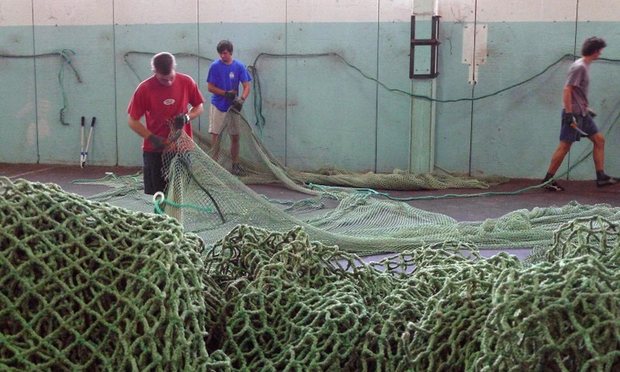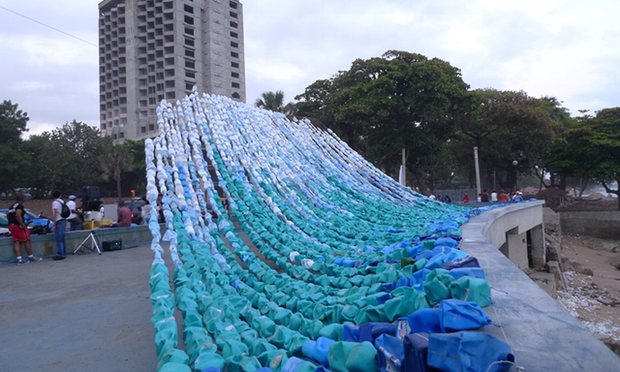Ljubljana, the capital of Slovenia, holds the coveted title of European Green Capital 2016, so this year it’s hosting many activities promoting sustainable development. More than 650 investment projects, both large and small, have been implemented so far, each aimed towards improving the quality of life of Ljubljana residents. One example, the BicikeLj bike-sharing scheme, has registered more than 1.6m journeys – close to the total number of inhabitants in Slovenia.
Tucked between Italy, Austria, Croatia and Hungary, Slovenia, a small EU country, has many reasons to develop circular business models. Most of its companies are suppliers, and as such, they are sensitive to new trends. A spirit of innovation and a large number of SMEs and startups looking for new opportunities represent the strong driving force of Slovenian entrepreneurship. Fostering collaboration and empowering cooperation between businesses, emerging innovators and the regions are crucial for the development of this new economic model.
Aquafil, Iskraemeco and ?tore Steel are just three of the circular economy frontrunners based in Slovenia.
Waste fishing nets

Aquafil Group is a leading international player in the production of fibres and polymers, primarily Nylon 6, Dryarn and XLA, but also, more recently, it is the inventor and only producer of ECONYL, a polyamide made from 100% recycled raw materials. These materials include post-consumer fishing nets, carpets, clothing, rugs, and rigid textiles, as well as pre-consumer waste like oligomers and scraps generated by the production of Nylon 6.
Post-consumer fishing nets.

ECONYL is already used in garments by brands like La Perla and Adidas, which is a great step forward in the textile sector, given that 20% of global waste comes from the textile and apparel sectors. “The demand for ecological nylon is now higher than the quantity we can produce. From the very beginning it has been highly respected by our customers and recognised as a premium material,” proudly explains Edi Kraus, CEO of Aquafil Slovenia.
The circular smart meter
The Slovenian company Iskraemeco is playing a visible role in the most circular environment so far – the Netherlands. The initiative started in 2013 with the signing of a Green Deal Fair Meter between the social enterprise Waag, the companies Liander and Stedin, and the Dutch government. Following new EU regulations, all households in the Netherlands will be offered a smart meter before 2020. The Green Deal ensures that these meters will not only be smart but fair, and that with every subsequent (cost-based) product development of the smart meter in the chain, the design principles of circularity will be adhered to. The aim is that by 2020 every new smart meter produced will be made from more than 98% used resources and/or materials designed for reuse.
After a 12-month tender process, Iskraemeco was chosen as one of the Fair Meter developers and suppliers. They will deploy up to 2.5m smart meters within the five-year rollout period.
“For some months now we have been analysing all the materials and components in our smart meters. We are finding replacements for all those we identify that might not be gained or produced in a transparent, sustainable, circular and fair way, for instance if they exploit child labour or come from mines in war zones in Africa ,” explained Mojca Markizeti, Fair Meter project manager at Iskraemeco. Together with their partners in the project, they will also develop a supply chain transparency tool to enable other manufacturers to go more quickly and easily down the same path.
100% circular steel industry
The most circular sector in Slovenia, well above the global average, is the steel industry. Globally, only about 29% of steel is recycled, even though steel is 100% recyclable without loss of quality and has a potentially endless lifecycle.
“In Slovenia, every bit of around 600,000 tonnes produced per year is made from recycled (scrap) steel, which comes mainly from waste streams in Slovenia,” explained Marjan Ma?ko?ek, president of the Chamber of Commerce and Industry of Slovenia and CEO at ?tore Steel. He admits that going circular is more expensive at first but believes that in the long run the shift is inevitable. “If we take Slovenia as a very good example, we don’t have any natural resources except wood, so we have already been forced for many years to use and reuse resources very rationally and to innovate as much as possible. These are our only key opportunities,” he emphasised.
Engaging circular changemakers
On 6 May, an international conference, Embracing the Circular Change, took place in Ljubljana. Dr Janez Poto?nik, former EU commissioner for the environment and one of the champions of the circular economy, was the main speaker and one of the panelists. The event was organised by Circular Change - a newly established stakeholder engagement platform focusing on the circular economy, with the ambition of informing, educating, recognising leaders, interpreting best practice and co-creating pioneering case studies in the transition from a linear to a circular business model. This conference was an invitation to circular changemakers to contribute to the creation of good business in the near future.
